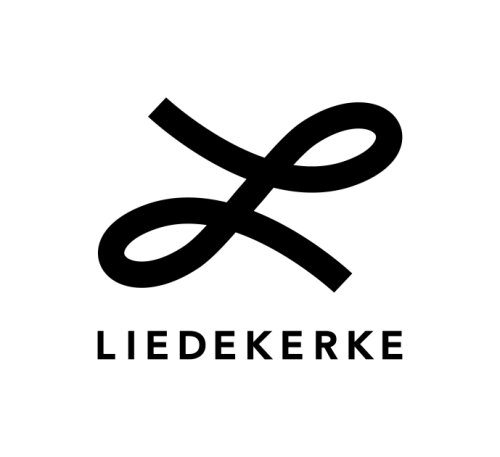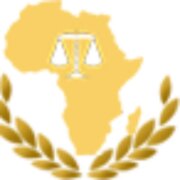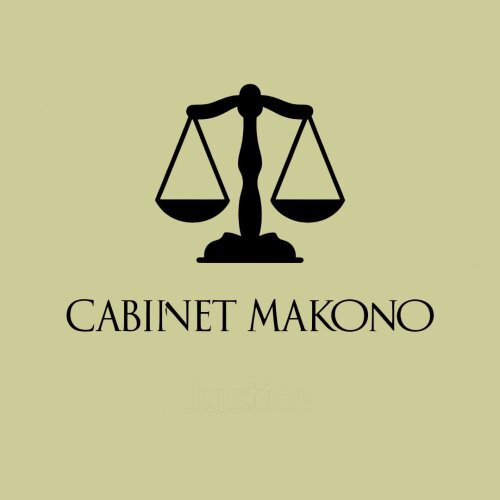Best Mining Law Lawyers in Kinshasa
Share your needs with us, get contacted by law firms.
Free. Takes 2 min.
List of the best lawyers in Kinshasa, DR Congo
About Mining Law in Kinshasa, DR Congo
Mining Law in Kinshasa, DR Congo, is primarily governed by the country’s Mining Code and supporting regulations. The Mining Code sets the framework for exploration, exploitation, and management of mineral resources within Congolese territory. The legal regime aims to foster investment in the mining sector, promote responsible mining practices, protect the environment, and ensure that the Congolese state and its citizens benefit equitably from mineral resources. Kinshasa, as the capital city, is a central hub for regulatory authorities, legal advisors, and mining companies operating in DR Congo.
Why You May Need a Lawyer
Engaging in mining activities or investments within Kinshasa and the broader DR Congo can be complex due to numerous legal, regulatory, and administrative requirements. Here are some common situations where legal assistance specializing in Mining Law may be critical:
- Applying for or transferring mining licenses and permits
- Structuring and negotiating mining joint ventures or investment agreements
- Navigating the environmental and social compliance obligations
- Handling disputes related to mining contracts, land rights, or royalties
- Understanding tax obligations, export regulations, and foreign exchange controls
- Conducting due diligence on mining properties and operations
- Dealing with government authorities for regulatory compliance audits
Whether you are a foreign investor, local operator, or affected community, a qualified mining law lawyer can help safeguard your interests and minimize legal risks.
Local Laws Overview
Mining activities in Kinshasa and throughout DR Congo are guided by the Mining Code (Law No. 007/2002 of July 11, 2002 as amended by Law No. 18/001 of March 9, 2018) and its regulations. Here are some key legal aspects:
- License Regimes: Mining rights are granted through exploration permits and exploitation licenses. The process is formal and requires compliance with stringent conditions.
- State Participation: The state is entitled to a free carried interest in mining projects and may also participate through joint ventures with private entities.
- Local Content: The law encourages the use of local labor and the development of local businesses in the industry.
- Taxation and Royalties: Specific taxes, royalties, and fees apply to mining activities. There are strict rules for the declaration and payment of these duties.
- Environmental Obligations: Compliance with environmental management plans and community development is mandatory. Environmental Impact Assessments (EIAs) are required before any mining activity can commence.
- Export Regulations: Export of minerals is regulated and subject to government controls, including valuation and certification requirements.
- Dispute Resolution: The Mining Code allows for disputes to be settled through local courts or in some cases through arbitration.
These laws create a detailed framework governing all stages of mining operations from exploration to exporting minerals.
Frequently Asked Questions
What are the main laws governing mining in DR Congo?
The most important laws are the Mining Code (as amended in 2018), the Mining Regulations, and various ministerial decrees specific to sectors such as gold, diamonds, copper, and cobalt.
Can foreign companies own mining rights?
Yes, foreign individuals and companies can apply for and own mining rights, subject to compliance with legal and regulatory requirements including setting up a local entity.
What is the role of the government in mining projects?
The government issues licenses, regulates compliance, claims a free carried participation in mining projects, and oversees taxation and environmental standards.
What taxes and royalties apply to mining activities?
Taxes include surface royalties, mining royalties, export taxes, profit taxes, and other sector specific fees as defined in the Mining Code. Rates vary by mineral and stage of production.
How long is a mining license valid?
An exploration permit is usually valid for up to five years, with possible renewals. Exploitation (mining) licenses can be valid for up to 25 years, also renewable.
Are there environmental requirements for mining?
Yes, mining companies must conduct Environmental Impact Assessments, obtain approval for environmental management plans, and meet obligations related to land rehabilitation and community development.
How are mining disputes resolved?
Most disputes are handled by local courts, but the Mining Code allows for the possibility of arbitration, especially for disputes involving foreign investors.
What are the penalties for non-compliance with mining laws?
Penalties can include fines, suspension or cancellation of licenses, closure of mining operations, and criminal prosecution in cases of severe violations.
Can mining rights be transferred or sold?
Yes, mining rights can be transferred or assigned to third parties with the prior approval of the Mining Registry and subject to government conditions.
What is local content and community development in mining?
Local content refers to requirements for hiring local staff and procuring goods and services locally. Community development includes obligations to invest in projects that benefit communities affected by mining operations.
Additional Resources
To better understand mining law and related regulations in Kinshasa, DR Congo, the following resources and organizations can provide guidance:
- Ministry of Mines: The main government body responsible for mining policy, regulation, and oversight.
- Cadre de Concertation de l’Industrie Minière: An industry platform bringing together stakeholders to discuss mining legislation and best practices.
- Centre d’Expertise, d’Evaluation et de Certification des substances minérales précieuses et semi-précieuses (CEEC): An official body overseeing mineral certification and exports.
- Mining Registry (Cadastre Minier): The office responsible for granting, renewing, and transferring mining rights and permits.
- Local Bar Associations: Listing qualified lawyers specializing in mining law.
Next Steps
If you require legal advice or assistance in Mining Law in Kinshasa, DR Congo, consider the following steps to protect your interests and ensure compliance:
- Determine your objective, such as obtaining a mining permit, resolving a dispute, or securing an investment.
- Gather all relevant documentation, including licenses, contracts, corporate records, and compliance reports.
- Consult with a qualified lawyer or law firm specializing in mining law. They can assess your case, explain the legal implications, and guide you through the regulatory process.
- Reach out to relevant government agencies for official guidance or clarification on licensing and compliance procedures.
- Stay informed about changes in mining policies and regulations by referencing updates from the Ministry of Mines and industry publications.
Proactively seeking expert legal help in mining law can facilitate your activities, minimize risk, and ensure that your mining operations or investments in Kinshasa and throughout DR Congo are legally sound and sustainable.
Lawzana helps you find the best lawyers and law firms in Kinshasa through a curated and pre-screened list of qualified legal professionals. Our platform offers rankings and detailed profiles of attorneys and law firms, allowing you to compare based on practice areas, including Mining Law, experience, and client feedback.
Each profile includes a description of the firm's areas of practice, client reviews, team members and partners, year of establishment, spoken languages, office locations, contact information, social media presence, and any published articles or resources. Most firms on our platform speak English and are experienced in both local and international legal matters.
Get a quote from top-rated law firms in Kinshasa, DR Congo — quickly, securely, and without unnecessary hassle.
Disclaimer:
The information provided on this page is for general informational purposes only and does not constitute legal advice. While we strive to ensure the accuracy and relevance of the content, legal information may change over time, and interpretations of the law can vary. You should always consult with a qualified legal professional for advice specific to your situation.
We disclaim all liability for actions taken or not taken based on the content of this page. If you believe any information is incorrect or outdated, please contact us, and we will review and update it where appropriate.














